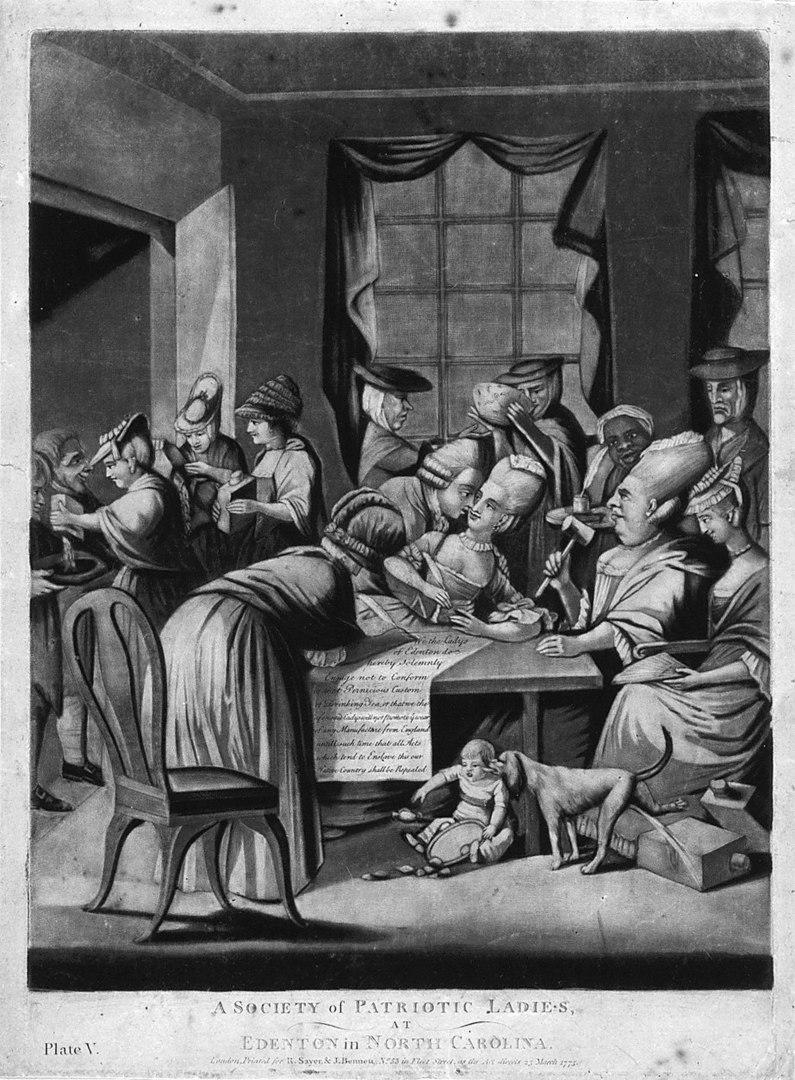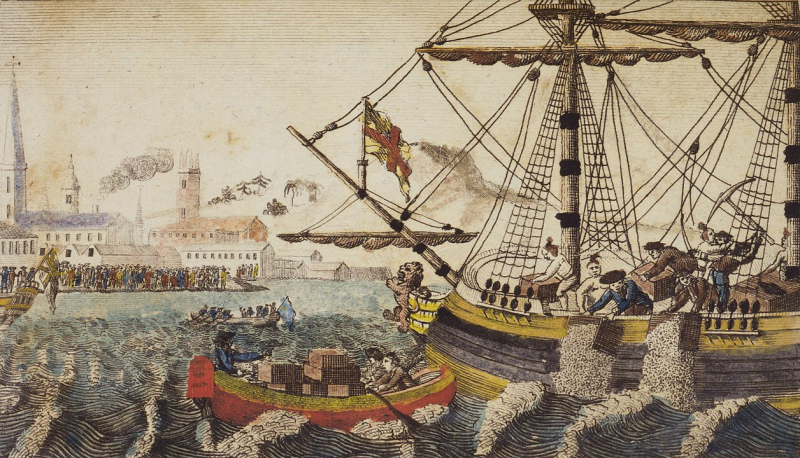Women played a important role in nonimportation and nonconsumption
Nonimportation and nonconsumption became important weapons in the American resistance movement's arsenal against British taxation without representation. Women played an important role in nonimportation and nonconsumption by defiance, rejecting silks, satins, and other luxuries in favor of homespun clothes manufactured in spinning and quilting bees, thereby sending a strong message of togetherness against British oppression.
Housewives, as administrators of the household economy, used their purchasing power to support the Patriot cause. Women refused to buy British-made products for use in their homes. The tea boycott, for example, was a relatively moderate method for a woman to identify herself and her family as patriots. Similar boycotts were imposed on a range of British items, and women preferred instead to buy or make "American" goods. Despite the fact that these "non-consumption boycotts" were based on national policy, they were implemented by women in the family domains in which they reigned.
The Edenton Tea Party was one of the first organized and publicized political activities in the colonies by women. Fifty-one women signed an agreement at Edenton, North Carolina, officially agreeing to boycott tea and other British items, and it was distributed to British newspapers. Buying American items became a patriotic gesture during the Revolution. Also, when homes were urged to contribute to wartime efforts, frugality (a praised feminine virtue prior to the revolution) became a political statement.







